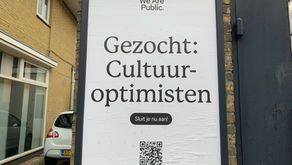If you can walk, you can dance
- Judith Weir
- Jun 3, 2017
- 2 min read

‘If you can walk, you can dance/ if you can talk you can sing’ is a Zimbabwean proverb from which the title of Marian Molteno’s 1998 novel comes. As this book is more or less a manifesto for accessible live music-making, it’s great to report that, having won a Commonwealth Writers’ Prize in earlier years, it has now been re-published by Niyogi Books. An enjoyable event was held (in a Nazarene Church/coffee bar in Clapham, where else?) to celebrate this unusual success for an originally self-published book.
The book’s protagonist is Jennie, who has to escape her native South Africa in a hurry when a student network she’s involved in is uncovered during the apartheid times. Eventually arriving in 1970s London, she barely supports herself with low-paid jobs, but her salvation turns out to be music, even though in her past life she wasn’t formally trained as a musician at all. She picks up the music that is important to her almost incidentally from her life experiences; there is a great deal of drumming, singing, and eventually she comes by a viola which she learns to play by ear. Marion, as many authors do, emphasised during this evening that Jennie was not her, but an amalgam of all her experiences and acquaintance. However, Marion was an early member of the wonderful East London Late Starters Orchestra, and when I first read the novel in typescript almost twenty years ago I felt that she had deftly expressed a lot of the philosophy behind the inclusive musical activities which were being born at the time, long before most people had noticed them.
At the event I had the pleasure of interviewing Michael Finnissy, also an enthusiast for the book. I asked him if he thought the musical scene described was still going on today. Yes, he said, but a lot of the musical activities described had become ‘freeze-dried’, into a formula that could be used when accessibility in music needed to be demonstrated, often by one of the big established musical organisations. I thought it was a great description of what happens, in the wider concert-giving world, and probably in many other fields as well. We try to reproduce what has worked in the recent past rather than trying to find out what would be a good thing to do now. Be that as it may, our interesting evening in the Nazarene Church ended with joyous singing by the Clapham Community Choir, breaking out into the audience.






